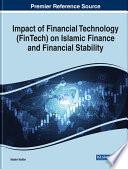The Case Analysis from Australia
Theory and Practice of Modern Islamic Finance seeks to contribute to the existing body of work in the area of Islamic finance through examining the extent of divergence in practice of Islamic financing from the traditional Shari'ah in the Australian context. The author makes a discursive analysis of the regulation of Islamic finance in Australia in terms of (a) the financing instruments used, (b) certainty of transactions between participants in the system, and (c) institutional risk management of Islamic financial institutions. The work's objectives are two-fold: (a) to analytically study the extent to which Islamic Financial Services Providers (IFSPs) of Australia differ from the traditional Shari'ah in their current practices of Islamic legal financial system by their use of different financial products and techniques, and (b) to create awareness and transparency about the various products and instruments used by IFSPs of Australia. REVIEWS "It is indeed a most comprehensive, methodologically sound, well organised, lucid, comprehensively documented and analysed, and convincingly argued and concluded research. It systemically addressed all the research questions raised and very convincingly and successfully resolved them to logical conclusions. The study can convincingly claim to have made a breakthrough in the frontier of knowledge in the field of Islamic finance" Professor R. I. Molla, Multimedia University, Malaysia "Discussions of the topics throughout the book are logically coherent and presented in plain language. It is an insightful, well researched, logically organised and lucidly presented research work having overwhelming strengths and very limited weaknesses. I have no hesitation to say that this book may provide useful guidelines for dealing with the emerging issue of Islamic finance around the world.." Dr. S. M. Solaiman, The University of Wollongong, Australia "I have gone through for the most part of author s present work and found that it was excellent. I must congratulate him for preparing a research work of such standard. It was due to his extreme commitment, sense of professionalism, and perseverance." Professor A. B. Rafique Ahmad, Pro-VC, International Islamic University Chittagong, Bangladesh "I read this book on Islamic finance with lots of interest. It is one of the finest pieces of writing, in terms of content, eyes to detail, referencing and scholarly analysis. It is often a challenge to simplify such a complex subject without loosing the necessary details. There are very few Islamic books that introduce all jurisdictions. This book filled in this gap through making an unbiased objective reading. The book have covered very valid governance issues such as the conflict of interest of the regulators (Shari'ah Board), the products resembling conventional loans and the reluctance of sharing the full risk. While Islamic Institutions may shy away from the author, his talent will be highly sought in academia and research circles." Dr. Shahadat Chowdhury, School of Civil and Environmental Engineering, University of New South Wales, Sydney, Australia This book appears to be the only major research monograph on Islamic finance in Australia. The historical, rational and critical methodology of this book follows the scientific research methodology of the great twentieth century philosopher of science Karl Popper. The clarity and logical rigour resulting from this approach is one of the major strengths of this work. Chapters 1-3 and 5 are of excellent quality and reflect Dr Ahmad's authoritative knowledge in the field of Islamic law. Chapters 6-11 reflect not only Dr Ahmad's expertise in Islamic financial law, evident in previous chapters but also his extensive practical experience in his advisory and consultancy work. The book raises many questions for future research, including, how to resolve the perceived divergence of financial practice from Islamic law and the development of a fully satisfa
There is no disagreement among Muslims that the Qur'an is the basis of the Shari`ah and that its specific provisions ... “Sources of Islamic Law, and the Protection of Human Rights in the Islamic Criminal Justice System”, The Islamic ...










